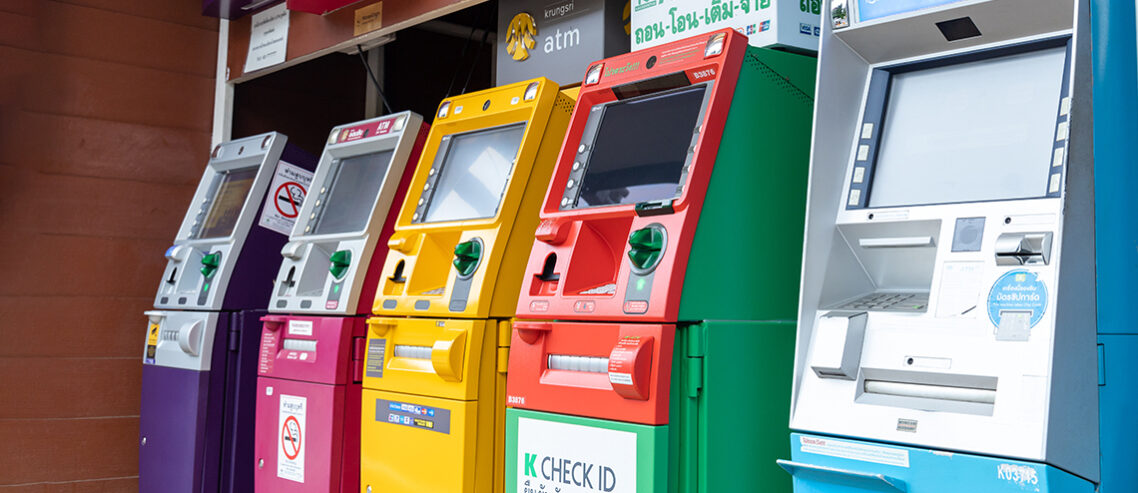How to Open a Bank Account in Thailand in 2023
If you plan to come to Thailand to retire or even further your career here, opening up a Thai bank account will make it a lot easier for you to manage your retirement funds from abroad or receive your salary if you get paid in Thai baht.
The good news is that finding the right bank (and branch) is very easy, and getting one opened up is relatively straightforward. However, without the right types of documentation and a basic understanding of opening an account, you’ll undoubtedly hit a few bumps along the way.
That said, this Pacific Prime Thailand article will provide an overview of opening up a bank account in Thailand and cover the types of visas and documents required for expats to bring.
Opening a Bank Account – An Insight For Expats
Although opening up a Thai bank account is deemed manageable and straightforward, you should know that Thai banks are thorough with their screening and checks to prevent fraudulent activities and safeguard their reputation.
All Thai banks operate under the terms and conditions, as well as the economic policies proposed by the Bank of Thailand. This means the requirements set out by each bank, including what documents are required and the customer’s visa type, are stringent. However, expats shouldn’t be alarmed yet.
Provided that you’re on the correct visa and have all the listed documents, the process of opening a Thai bank account is simple. If you’re an expat working in Thailand, your company may have staff assisting you. But it’s good to learn about Thai banks yourself for their other services.
Which Bank to Choose?
You may find it takes less than an hour to open an account as an expat; this varies depending on your nationality, where and when you go, and the clerk you meet. Most bank workers speak little English, if at all. But if you’re lucky, you may come across some who are fluent in English.
So that you’re aware, here is a list of reputable banks in Thailand:
- Kasikorn Bank (KBank)
- Siam Commercial Bank (SCB)
- TMB & Thanachart Bank (TTB)
- Krungthai Bank (KTB)
- Bangkok Bank (BBL)
- Kiatnakin Bank (KK)
- CIMB Bank
- Krungsri (BAY)
When visiting the aforementioned banks, do let them know what your purpose in Thailand is. By knowing whether you’re working or retiring, they can offer the right type of bank account to open and services to use.

Where Can You Go to Open a Thai Bank Account?
If you’re an expat who has just arrived in Thailand, you’ll probably want to head to Bangkok as banks in the commercial and business areas of the capital will likely have English-speaking staff. You’ll also be better off going to one of the above banks located in shopping centers like CentralWorld.
For instance, Although banks are normally located on the same floor or area of a shopping mall, KBank has two branches in Siam Paragon (the main branch on the Ground floor and their Wisdom branch on the third floor) that receive a constant flow of expat nationals who seek to open up a bank account.
BBL and TTB in both shopping centers also see a number of expats visiting and enquiring about the process of opening up a Thai bank account. The same can be said of other banks, which are worth heading over to enquire about their accounts and services.
If Bangkok is not convenient, you can head to bank branches in other large cities or populated towns across Thailand. It is best to visit their websites and see what services they can offer, especially when opening a Thai bank account.
Bank Accounts for Expats to Open in Thailand
Depending on the type of visa you’re on, you can open one of the following bank accounts:
- Savings account
- Current account
- Fixed-term account
- Foreign currency account

Which Account is Right For You?
If you’re an expat who’s working or retired in Thailand, you’ll probably need to inquire about different types of bank accounts: a savings account, current account, or fixed-term account.
A savings account typically comes with a passbook and is equivalent to a current account in the UK. You can also subscribe to a debit card with an annual fee. On the contrary, a current account comes with a checkbook and is more appropriate for those on a work permit and/or running a business.
Retirees on a non-immigrant visa (O-A long-stay visa) or equivalent may find a fixed-term account suitable for putting their savings away and seeing it grow with interest.
Required Documents to Open a Thai Bank Account
Depending on your status in Thailand, you’ll need to provide at least the following documents:
- Your visa – either a three-year non-immigrant visa for business, non-immigrant visa (O-A long-stay visa), non-immigrant B visa for business or work, or a work permit
- Your passport
- Proof that you’re living here in Thailand such as a lease or rental agreement
- A letter from your employer confirming your title and your employment status in Thailand
- A reference from the bank account you have in your home country or embassy
It’s best to ask the bank you visit to explain and provide a list of documents for you to bring on your next visit.

Get Insurance with Pacific Prime Thailand
Before thinking about which bank to go to or where to open up a Thai bank account, you’ll definitely want to consider securing some form of travel or international health insurance for your time in the country.
Travel insurance comes with many benefits for when you travel over, like coverage for flight delays, cancellations, or loss of baggage or possessions. Medical coverage is also available. However, the limits or benefits attached may not be as comprehensive as an expat health insurance plan.
If you’re unsure of which to choose, our Pacific Prime experts can go through a list of specific plans from reputable insurance partners to match your needs and budget. Contact us today for a free quote and impartial advice.
- An Overview of Thailand’s Medical Tourism Industry - September 20, 2023
- How to Open a Bank Account in Thailand in 2023 - August 25, 2023
- Typhoid Fever in Thailand - August 22, 2023






Comments
Comments for this post are closed.